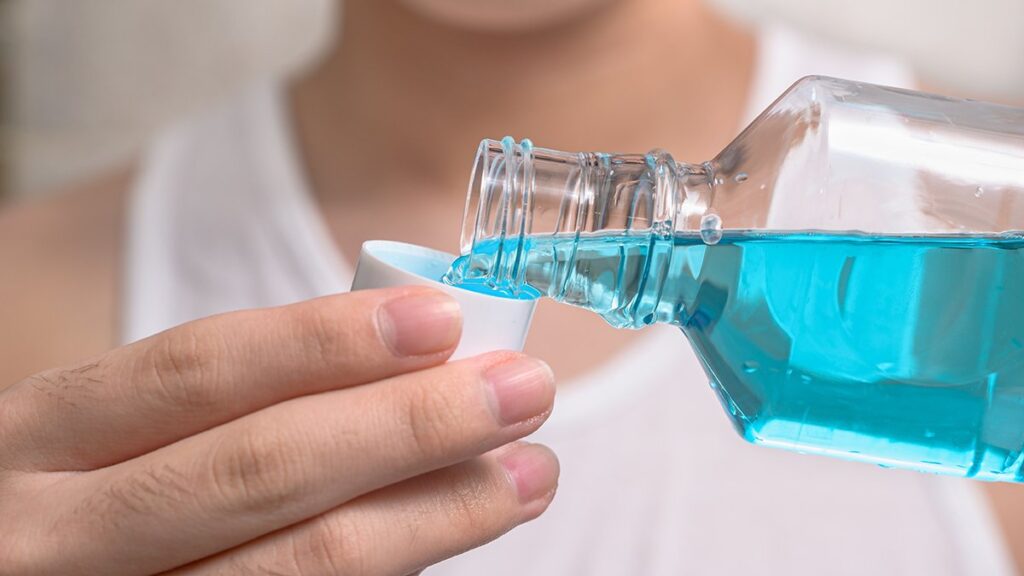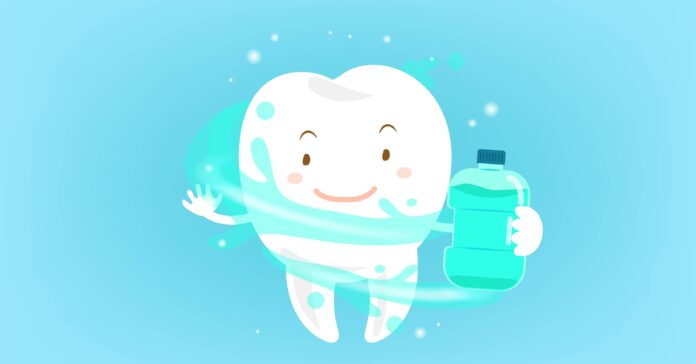Maximizing Oral Health with the Right Mouthwash Routine
In the realm of oral care, mouthwash stands as a formidable ally, offering benefits beyond the refreshing minty sensation it leaves in its wake. There exist two categories of oral rinses: cosmetic and therapeutic. Cosmetic mouthwashes provide temporary relief from bad breath, enveloping the mouth in a pleasant minty aura. Conversely, therapeutic mouthwashes, available both over-the-counter and through prescription, pack a more concentrated punch, combating plaque buildup, cavities, and bolstering overall oral hygiene.
Insights from Dental Experts
In an illuminating discussion with Dr. Ekta Khatri, Founder and Prosthodontist at The FuncDent, The Functional Dentistry Centre, the importance of incorporating mouthwash into the oral hygiene routine was emphasized. Dr. Khatri shed light on several ways in which mouthwash contributes to oral health:

1. Bacterial Combat:
Mouthwash, armed with antimicrobial agents like alcohol or essential oils, serves as a potent soldier against oral bacteria. By reducing bacteria, it minimizes the risk of gum disease, cavities, and unpleasant breath.
2. Breath Freshening:
A noticeable and immediate perk of using mouthwash is its breath-freshening prowess. It acts as a powerful ally in masking bad odors and annihilating the bacteria responsible for undesirable breath.
3. Plaque Reduction:
Mouthwashes enriched with fluoride contribute to reducing plaque buildup on teeth, consequently lowering the risk of cavity development.
4. Gum Health:
Effective in curbing inflammation in the gums, mouthwash becomes a crucial player in preventing or managing gum diseases, such as gingivitis.
5. Holistic Oral Hygiene Enhancement:
While not a substitute for brushing and flossing, mouthwash complements these practices, elevating the overall oral hygiene routine.
6. Specialized Use:
Tailored mouthwashes may be recommended post-surgery or for individuals with specific oral conditions, ensuring a nuanced approach to oral care.
Dr. Manvi Srivastava from the Department of Dentistry at Noida International Institute of Medical Sciences and Hospital delved further into the intricacies of mouthwash benefits, offering a detailed perspective:
1. Breath Refinement:
The swish of mouthwash leaves the mouth feeling and tasting minty clean, making it an excellent prelude to social interactions.
2. Debris Disposal:
Acting as a final sweep after brushing and flossing, mouthwash carries away residual food particles, ensuring a thorough clean.
3. Cavity Safeguard:
Fluoride-infused mouthwashes play a pivotal role in fortifying enamel and combating cavity-causing bacteria.
4. Sensitivity Reduction:
Higher fluoride concentrations in prescription mouth rinses not only shield against cavities but also diminish tooth sensitivity.
5. Gum Disease Defense:
Mouthwash ingredients neutralize bacteria contributing to gum disease, making it a potent tool in reversing mild gingivitis.
6. Dry Mouth Alleviation:
Some mouthwashes stimulate saliva production, addressing dry mouth concerns and maintaining optimal moisture levels.
7. Teeth Whitening:
Hydrogen peroxide-infused mouthwashes, found in some formulations, contribute to safe and effective teeth brightening.
Tips for Optimal Mouthwash Use
While the benefits of mouthwash are evident, Dr. Ekta Khatri underscored the importance of correct usage to maximize advantages and prevent potential drawbacks:
1. Read the Label:
Different mouthwashes serve diverse purposes. Reading the label aids in selecting one that aligns with specific needs.
2. Follow Instructions:
Adhering to usage instructions is paramount. Some mouthwashes are best used before brushing, while others are more effective post-brushing.
3. Limit Alcohol-based Mouthwashes:
Alcohol-based formulations may be drying, making them unsuitable for individuals with dry mouth. Opting for alcohol-free options is advisable.
4. Avoid Swallowing:
Mouthwash is not intended for ingestion. Caution must be exercised to prevent swallowing, especially for formulations that can be toxic in large quantities.
5. Consult Your Dentist:
When in doubt about the most suitable mouthwash or its compatibility with specific oral health needs, consulting a dentist is recommended. Personalized recommendations can be provided based on individual situations.
Dr. Ekta Khatri emphasized that integrating mouthwash into a comprehensive oral hygiene routine can yield manifold benefits, including bacteria elimination, breath freshening, plaque reduction, and gum health support. However, it is crucial to view mouthwash as a supplementary component rather than a substitute for brushing and flossing. Choosing the right mouthwash, using it in accordance with instructions, and seeking professional dental guidance contribute to an informed and effective oral care routine. Regular dental check-ups further ensure well-informed decisions for maintaining optimal oral health.



